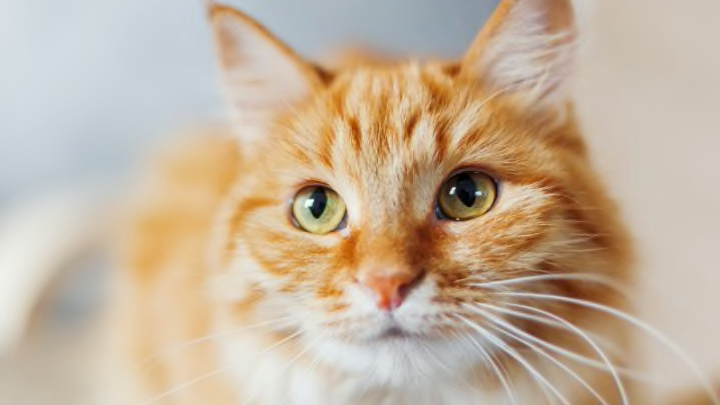Is Your Cat Constantly Meowing?

It is common knowledge, at least among cat owners, that cats meow to tell us something. However, when there are changes to the sound of meowing, if its tune is altered or becomes non-stop, you may wonder when to be concerned if something is wrong with your feline friend.
So, why is your cat meowing non-stop? There is a range of reasons that could cause your cat to suddenly meow around the clock. It could be anything such as your cat calling for more attention or signaling a medical condition.
The best way to figure out what is causing your cat to be more vocal is to be aware of how your cat’s meow normally sounds. Changes in cats’ meows are more likely to signify discomfort. Some cats may purr or give soft meows when they are happily eating, but if your cat suddenly starts yowling this should raise red flags for you to pay closer attention and get your cat checked out.
Yowling as a Sign of Pain
Yowling is a specific type of meow many cat owners are familiar with and know to associate with pain. If your cat has begun yowling frequently or during certain activities, you should take note and keep track of their other unusual habits. A change in bathroom schedule or yowling after eating could be signs of hunger or stomach pain. If this behavior continues, you should get your cat checked out by the vet to ensure they do not have a problem with their digestive system. In addition, if your cat is yowling when using the litter box, you should take them to the vet, as this can be a sign of infection.
If your cat has an injury or infection, they are likely to begin yowling frequently to get your help with the problem. As mentioned before, you need to pay attention to when they are yowling first. If that doesn’t help you find the problem, you should pay attention to how your cat is moving around, ensuring they are not favoring any body parts.
Standard Causes of Non-Stop Meowing
Similar to how humans can talk excessively when under duress, non-stop meowing could signify psychological stress for cats as well. Cats are easily affected by new situations and changes. Trips away from home or strange things in their area, such as new pets or furniture, could trigger them to yowl.
Cats often take much longer to reacclimate to their new surroundings and look to you for reassurance. This is why one of the most common changes that trigger non-stop meowing in cats is a move. Most cats do not like places they have not thoroughly inspected and marked their territory in.
Other times, cats may have an undiagnosed medical condition causing them to meow non-stop, especially if this is a significant, sudden change with no obvious change. It is very common for unspayed cats to let out blaring, excessive yowls when in heat. Other medical causes can be hypothyroidism, issues with their senses, or cognitive dysfunction.
Minor Reasons for Non-Stop Meowing
Communication between a cat and its owner is essential. Pay attention to the nuances of your cat’s personality so you can pinpoint specific changes in their behavior. After a while, your cat’s meows may start to blend in with each other, making it difficult to pinpoint the exact cause of non-stop meowing without the help of a vet. However, more often than not, if your cat is constantly meowing and following around they just want attention! Your cat probably wants extra love and affection because they are bored. To help with this, you can play with your cat or create a sensory enriched environment for them.
Along the same lines, some cats may come up to you with a toy in their mouth, meowing. Most likely, they are showing you the toy to get your attention and show you what they found or get you to play with them. Some female cats, especially unspayed ones, will feel a strong attachment to their favorite toy as if the toy is their baby, and showing you her toy as a mother would show off her baby.
Sometimes cats start meowing when they are up in the middle of the night. This could be from loneliness while their humans are sleeping and they want affection. Other times, it could be they lack access to something and are trying to get your attention for help. You should be able to figure out what they are needing by coming into the same room as them.
There are a large number of reasons your cat could be meowing more than normal or even seemingly non-stop. Sometimes there could be a hidden, positive reason, such as happiness, playing, or their increasing bond with you. However, there are also times an increase in meowing, or loud yowling could indicate problems with their health. If you are growing concerned about your cat’s increased meowing, pay attention to when they are meowing as well as other habits, such as eating, toilet activity, and their overall behavior. If there are changes in these things as well, there could be an underlying problem requiring a trip to the vet.